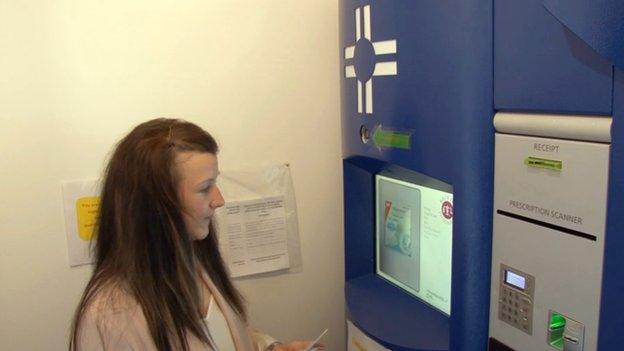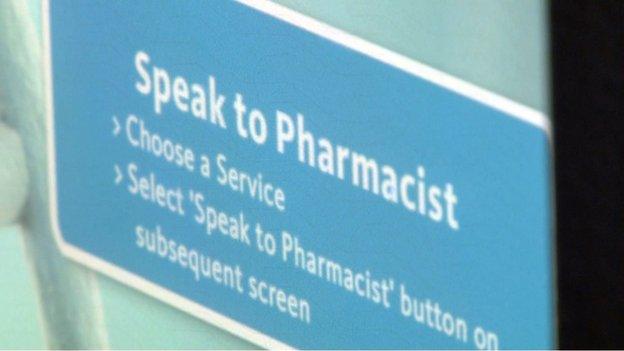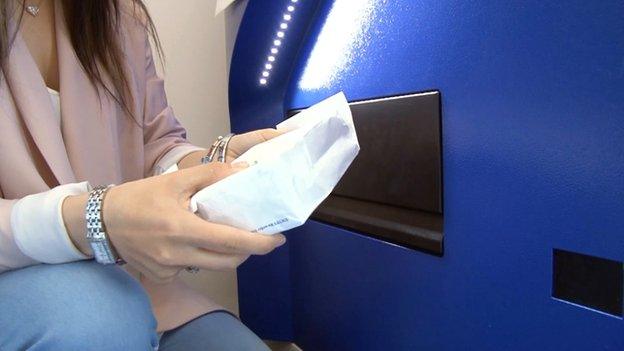Trial of robotic pharmacy begins in Aberdeenshire
- Published

The kiosk has been installed in a shop in Inverallochy
A new robotic pharmacy kiosk is being trialled in Aberdeenshire.
It allows people to speak remotely to a chemist via webcam and access medicines.
The kiosk - in a shop in Inverallochy and linked to a pharmacy in nearby Fraserburgh - has cost £150,000 and taken four years to develop.
The Aberdeen University team leading the project believe it has the potential to be rolled out in the Highlands, and also urban areas.

The project has taken four years to develop
Customers can speak to a pharmacist through a webcam while medicine and drugs are safely and securely dispensed by the kiosk.
It avoids people having to travel long distances to their nearest pharmacy and reduces the chance of buying over the counter medicine and drugs without proper advice.
If successful the kiosks could be rolled out in towns and villages where local chemists have become unviable and closed down.
'Safe supply'
Prof Christine Bond, chairwoman of general practice and primary care at the University of Aberdeen, said: "The role of the pharmacist and the services they provide has expanded greatly in recent years so in rural areas where it is not financially viable to have a pharmacy, the local community are disadvantaged."
She added: "People in rural areas are faced with having to travel further to access a pharmacist and as such there is the risk they may be more likely just to buy medicine without taking advice from a pharmacist.
"My research is focussed on the safe supply of medicines - both non-prescription and prescription."

Prof Bond said the project faced a number of hurdles before it could be rolled out elsewhere
David Green, systems integration business director for Atos in Scotland, said the kiosk delivered a "viable solution" to some of the challenges of healthcare in rural communities.
He said: "This exciting innovation in patient care will extend existing community pharmacy and epharmacy services and offer the chance to test the kiosk's potential to provide new additional services which are integrated with existing NHS Scotland systems and services."
As well as being able to speak directly with a pharmacist and collect dispensed medicines, the kiosk also allows users to deposit prescriptions, which can be filled and collected later, and access other pharmacy services such as the Minor Ailment Service (MAS).
MAS allows those who are entitled to them to receive community pharmacy advice and in some cases receive dispensed prescriptions that would otherwise require a visit to a GP practice.
Prof Bond said: "This is a research project so the reality of taking the kiosk forward as a viable solution to the needs of rural communities will face a number of hurdles.
"Having said that, I think there is considerable scope to expand the kind of services and connectivity the kiosk could have so there are challenges, but also opportunities."